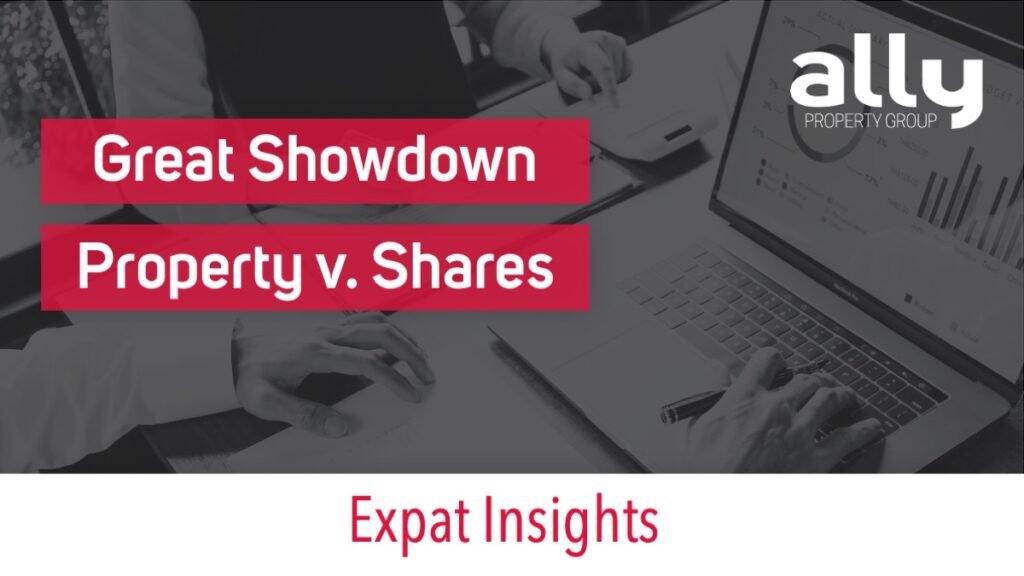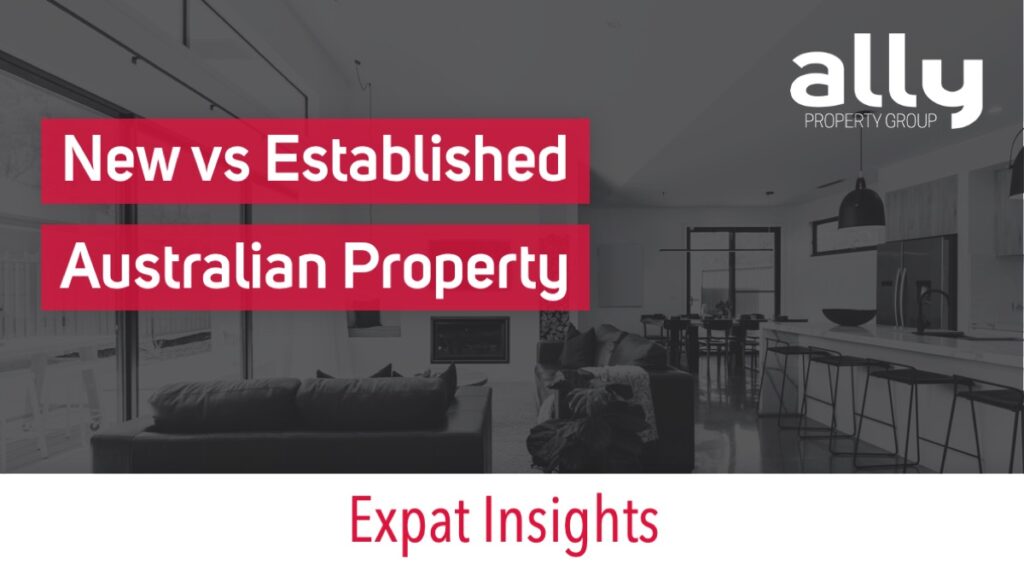Hidden Costs of Holding Australian Property
Owning property in Australia can be a great investment, generating leveraged returns and the chance to build wealth over time. However, many investors are surprised by the number of ongoing costs involved that often go beyond the obvious mortgage repayments. These “hidden” costs can make a real dent in your returns if not properly anticipated and managed.
Here, we’ll uncover some of the key expenses that come with holding Australian property and share tips to help you budget more effectively and maximise your investment’s potential.
Land Tax: The Cost of Owning Land in Australia
Land tax is one of the more misunderstood and, at times, unexpected costs that property investors face. In Australia, land tax is a state-imposed annual charge based on the unimproved value of your land. Importantly, this tax only applies if the value of your land exceeds a set threshold, which varies across states. This means that property investors who hold land in multiple states may find themselves liable for different amounts depending on the location and value of their properties. Diversification in ownership structures and the states of your investments can also be a powerful strategy to minimise your land tax exposure.
For instance, New South Wales has a land tax-free threshold of around $1,075,000 (as at 2024 onwards) whereas Queensland’s threshold is about $600,000. Additionally, for foreign owners or those holding properties in family trusts, certain states impose surcharges on top of the standard rate, making land tax an even bigger consideration. These rates and thresholds are subject to change, and it’s worth keeping an eye on them, as they can significantly impact your budget over time.
Land tax can sometimes catch property owners off guard, particularly those with multiple investments. While the primary residence is typically exempt, investment properties are not, and the costs can add up quickly. Regularly reviewing land tax assessments and seeking advice on structuring ownership can help you manage and, in some cases, reduce these costs.
Council Rates: Supporting Local Infrastructure and Services
Council rates are another essential cost that every property owner in Australia must factor into their budget. Set by local governments, these rates fund essential services and infrastructure within the community, including road maintenance, waste collection, and recreational facilities. The rates are typically calculated based on the value of your property, meaning that those with higher-value properties may see more substantial council rate bills.
While council rates are often payable quarterly, their impact on annual budgets should not be underestimated. Rates can vary significantly depending on the location and the type of property. For instance, properties in inner-city locations often attract higher rates compared to those in regional areas. Moreover, council rates generally increase annually, adding to the long-term cost of holding property.
One way to keep council rate costs under control is by choosing properties in areas with lower rates. However, this should be balanced against the demand and rental returns of the location. Understanding the council rates applicable in different areas before buying can prevent unexpected budget surprises down the track.
Property Management Fees: The Cost of Professional Management
Engaging a property manager can be very beneficial, particularly for landlords who live far from their investment property, such as Australian expats, or don’t have the time to be dealing with this.. Property managers handle everything from tenant screening and rent collection to maintenance requests and regular inspections, making the rental process far more straightforward. However, these services come at a cost, generally between 5% and 10% of the rental income. The standard acceptable rate tends to vary between states, so ensure that you do your homework here.
Additionally, many property managers charge additional fees beyond the standard management fee. These can include leasing fees for finding new tenants, inspection fees, and advertising fees when the property becomes vacant. If a tenant vacates and the property manager must re-let the property, re-letting fees may also apply, adding to the expense.
While these fees can add up, a good property manager often saves owners money in the long run by ensuring the property remains well-maintained and rented to reliable tenants. Still, it’s important for investors to thoroughly understand the terms of the property management agreement and be aware of any additional costs that may apply.
Repairs and Maintenance: Keeping the Property in Good Condition
Every property, whether newly built or older, will require ongoing repairs and maintenance. This is a necessary part of property ownership to keep the property in good condition, maintain its market value, and avoid disputes with tenants. Some repairs, such as plumbing or electrical issues, can be costly, especially if emergency repairs are needed. On average, investors should budget around 1% to 2% of the property’s value each year for maintenance costs, though this can vary based on the property’s age, type, and location.
Certain properties come with unique maintenance needs. For example, a house may require roof repairs, gutter cleaning, or garden maintenance, while an apartment may not need those specific services but could require more frequent internal repairs. Staying proactive with property maintenance can help prevent larger issues and potentially costly repairs in the future.
A great way to manage repair costs is to set up an emergency fund to cover any one-off expense items, which may act as your offset account. This approach ensures you have funds readily available when repairs are needed, rather than scrambling to cover unexpected expenses. Additionally, regular inspections can help identify minor issues early, saving on potentially larger repair costs later.
Water Rates: A Basic Utility with Hidden Costs
Water rates are another common but often overlooked expense for property owners. In Australia, water charges are split between two components: a fixed service charge and a variable usage charge. If the property is tenanted, the tenant typically covers the water usage portion of the bill, while the owner remains responsible for the fixed service charge. However, for vacant properties, landlords are responsible for the full water bill, which can add up during periods when the property is unoccupied.
The cost of water can vary based on the property’s location, as water utilities are managed by different local authorities across Australia. In areas experiencing water shortages, rates may be higher, further impacting the landlord’s bottom line. To mitigate these costs, landlords can encourage tenants to adopt water-saving habits or, in some cases, consider water-efficient upgrades to the property. Installing water-efficient fixtures and appliances can help reduce usage costs and make the property more appealing to environmentally conscious tenants.
Strata Fees: The Price of Shared Amenities and Maintenance
For those investing in apartments, units, or townhouses within a strata scheme, strata fees are another unavoidable expense. These fees, often charged quarterly, cover shared amenities and services within the building, such as elevators, swimming pools, security, and building insurance. Strata fees can vary widely depending on the age of the building, the extent of the amenities, and the quality of the strata management.
In complexes with a high level of amenities, strata fees can be substantial due to the maintenance of high-end amenities and extensive landscaping. Additionally, owners may face special levies for significant building repairs or renovations, which can be costly. Understanding the strata management history of a building, as well as reviewing past financial statements, can help you anticipate potential future costs.
While strata fees are often unavoidable, choosing properties in well-managed buildings with lower-cost amenities can help control costs. Investing in properties with fewer amenities can reduce ongoing expenses, but investors should weigh this against tenant demand, as buildings with appealing amenities often attract higher rents.
Insurance: Protecting Your Investment
Owning a property means you have valuable assets that need protection, and that's where insurance comes in. There are several types of insurance policies that property investors should consider. Building insurance covers the physical structure of your property against events like fire, storms, or vandalism. If you’re renting out your property, landlord insurance is essential—it protects against tenant-related risks such as rental default, property damage, or liability claims if someone is injured on your property.
Insurance premiums can vary widely based on factors like the property's location, age, construction materials, and claims history. Properties in areas prone to natural disasters like floods or bushfires often attract higher premiums. It's crucial to shop around and compare policies not just on price but also on the extent of coverage and exclusions. Regularly reviewing your insurance policies ensures that you're adequately covered as circumstances change, such as after renovations or changes in tenancy.
Vacancy Rates: The Cost of an Empty Property
Vacancy periods are an often overlooked cost of property investment. An empty property means no rental income, but the expenses—like mortgage repayments, utilities, and maintenance—continue to accrue. High vacancy rates can significantly impact your cash flow and overall return on investment.
To minimise vacancy risks, it's vital to invest in properties located in areas with strong rental demand. Researching market trends, population growth, and infrastructure developments can provide insights into an area's rental prospects. Setting a competitive rental price and maintaining the property in good condition also make it more attractive to potential tenants. Engaging a proactive property manager can further reduce vacancy periods by efficiently handling tenant turnover and marketing the property effectively.
Utilities During Vacancies: Hidden Holding Costs
When a property is vacant, the responsibility for utilities like electricity, gas, water, and internet reverts to the owner. While these costs might seem minimal on a monthly basis, they can add up, especially if the property remains unoccupied for an extended period. Moreover, disconnecting and reconnecting services can incur additional fees, so some owners opt to keep utilities connected between tenants.
To keep these costs down, consider only maintaining essential services during vacancies. For example, you might keep electricity connected for lighting during inspections but pause services like internet or gas if they're not necessary. Additionally, implementing energy-efficient fixtures can reduce utility costs when you or your property manager need to access the property.
Accounting and Legal Fees: Professional Services That Pay Off
Navigating the financial and legal aspects of property investment can be complex. Professional services like accounting and legal advice are invaluable but come at a cost. Accountants can help you maximise tax deductions, manage rental income, and ensure compliance with tax laws. Legal professionals assist with drafting lease agreements, handling disputes, and ensuring your property complies with the myriad of regulations affecting landlords.
While these fees represent an additional expense, they often save you money in the long run by preventing costly mistakes. Budgeting for these services is essential, and it's wise to consult professionals who specialise in real estate to get the most relevant and up-to-date advice. Some investors try to cut costs by handling these matters themselves, but without expert knowledge, this approach can lead to errors and potential legal issues.
Compliance and Safety Requirements: Staying on the Right Side of the Law
Australian property owners are required to adhere to various compliance and safety regulations. These include regular checks and maintenance of smoke alarms, electrical safety switches, and, in some states, water efficiency measures. Failure to comply can result in hefty fines and, more importantly, put tenants at risk.
For instance, smoke alarm regulations often require landlords to ensure alarms are installed correctly and are in working order, with some states mandating annual checks by qualified professionals. Electrical safety regulations may require the installation of safety switches and regular inspections. These compliance tasks come with associated costs that, while not exorbitant individually, can add up over time.
Staying informed about the latest regulations is crucial, as compliance requirements can change. Engaging a knowledgeable property manager or regularly consulting with legal professionals can help ensure you meet all your obligations, thereby avoiding penalties and contributing to tenant safety.
Conclusion
Investing in Australian property offers numerous benefits, including potential capital growth and steady rental income. However, it's essential to look beyond the obvious expenses and account for the hidden costs that come with property ownership. Land tax, council rates, property management fees, repairs and maintenance, water rates, strata fees, insurance, vacancy periods, utilities during vacancies, professional services fees, and compliance requirements all impact your investment's profitability.
By thoroughly researching and understanding these costs, you can create a more accurate budget and investment plan. Setting aside funds for unexpected expenses and regularly reviewing your financial strategy will help ensure that your property investment remains sustainable and profitable over the long term. Remember, the key to successful property investment isn't just about maximising income but also about effectively managing and minimising expenses.
Embark on your property investment journey with Ally Property Group, your trusted ally in Australia's real estate market. Our expert advisers are dedicated to crafting personalised investment strategies for Australian expats and residents alike, aiming to enhance your portfolio and maximise returns. Start building your wealth with Ally Property Group, where strategic insights, analysis and modelling leads to prosperous investments.
We’re more than just property advisers. As Australian expats ourselves, we've navigated the intricate world of property investment both at home and abroad. With a legacy rooted in financial services, we offer a holistic, transparent, and strategic approach, ensuring you're equipped with the knowledge and confidence to make informed decisions.
Book an obligation-free, complimentary consultation here today.
General Information Warning: The information contained herein is of a general nature only and does not constitute in any way, personal advice. You should not act on any recommendation without considering your personal needs, circumstances, and objectives. We recommend you obtain professional property investment advice specific to your circumstances.
Pay it forward! Share this article with your friends and network.



